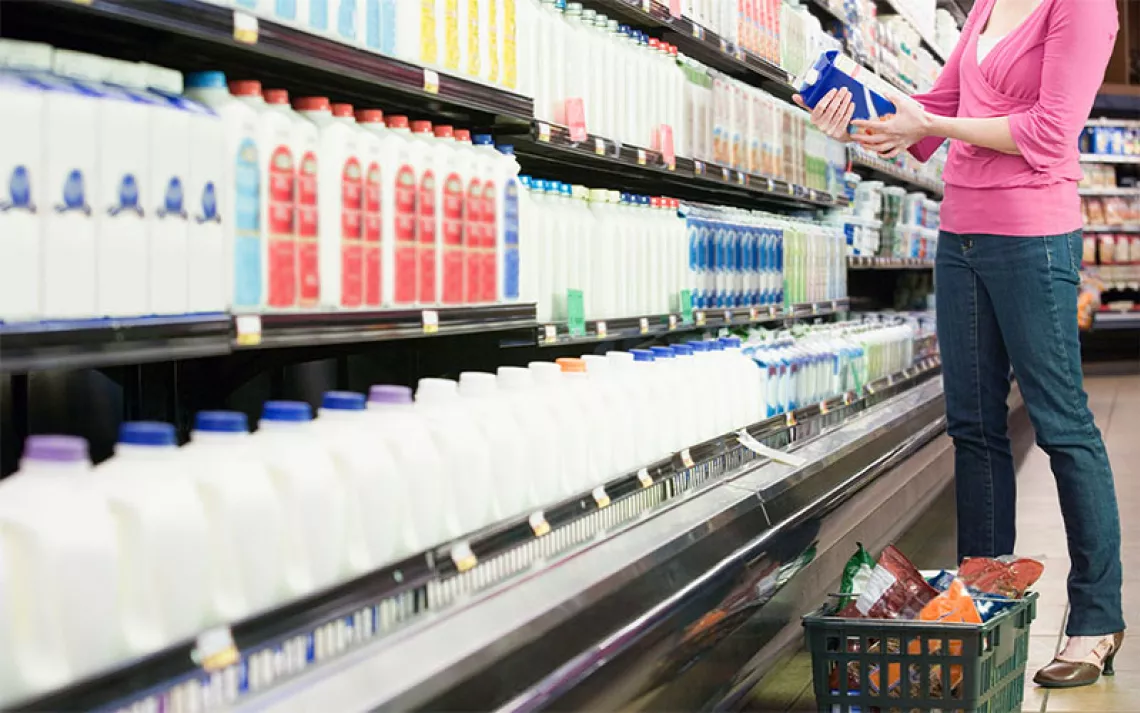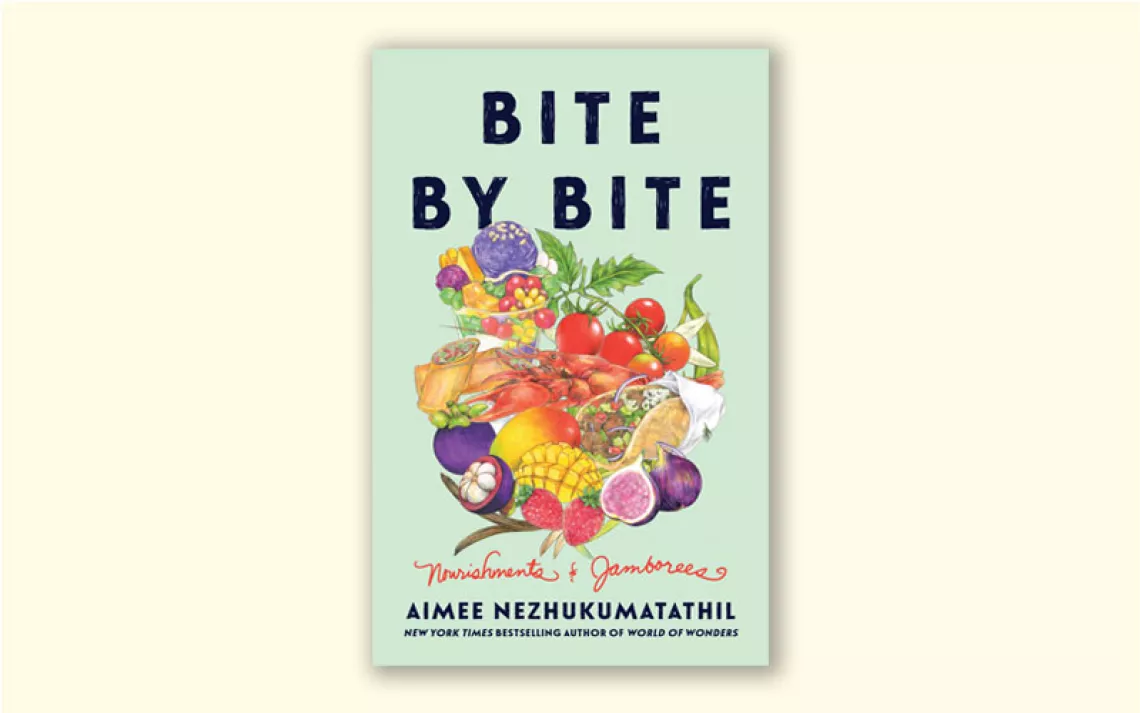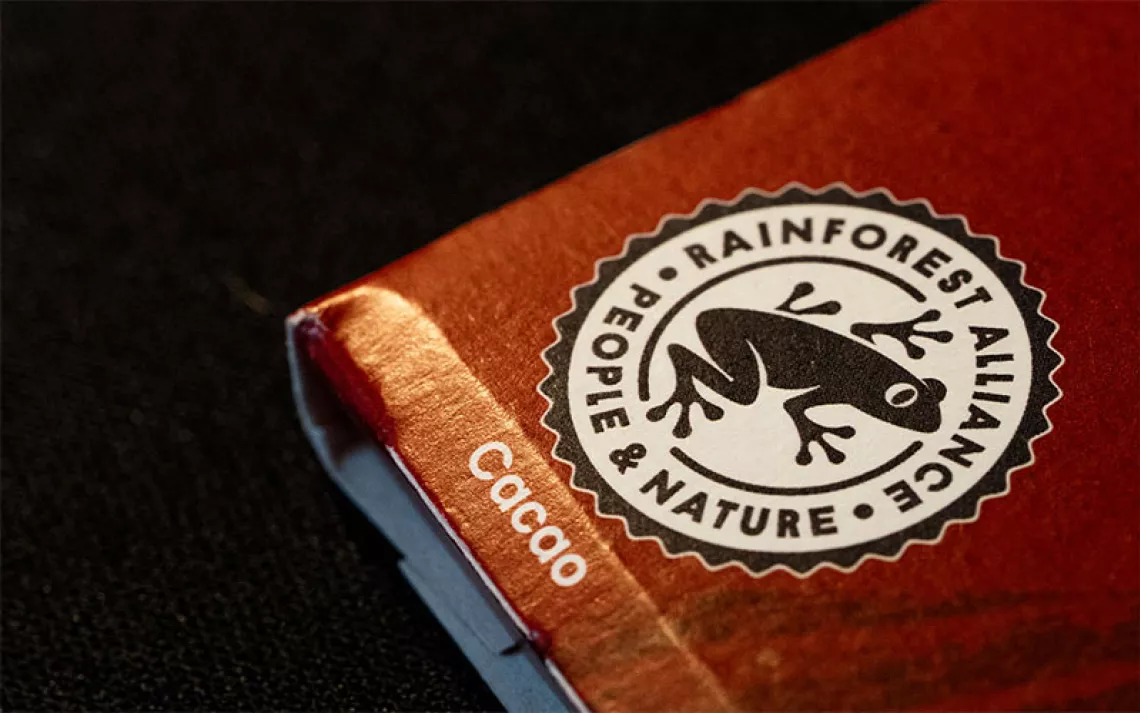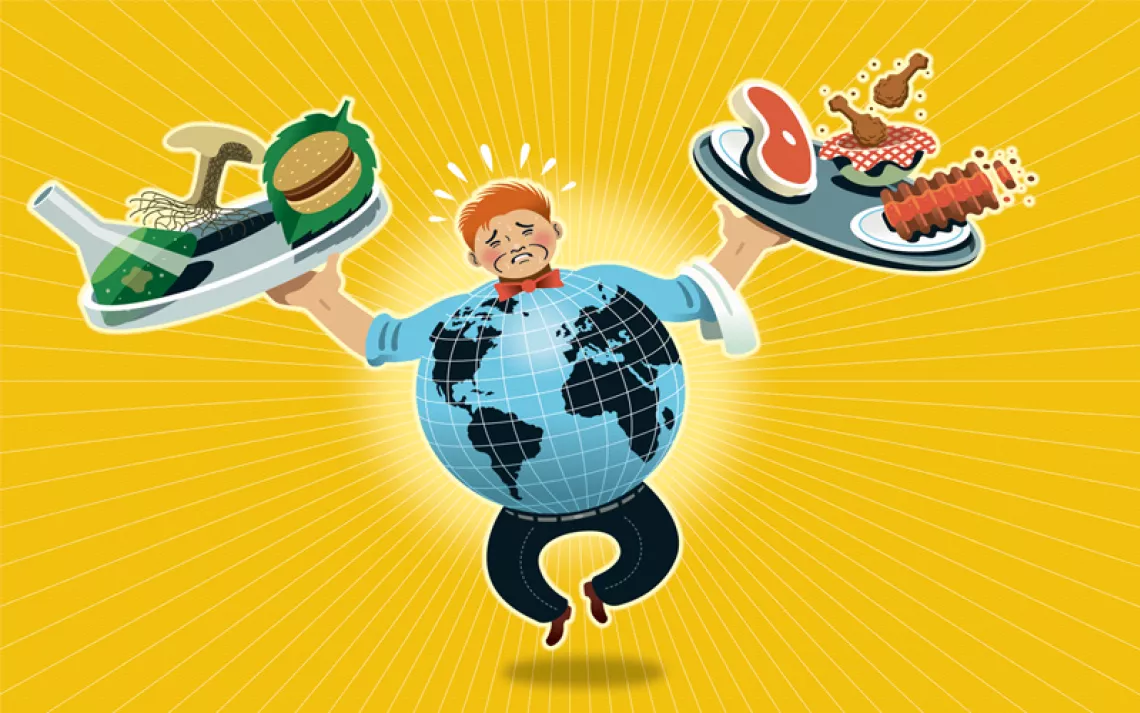Did an Orangutan Die for Your Oreos?
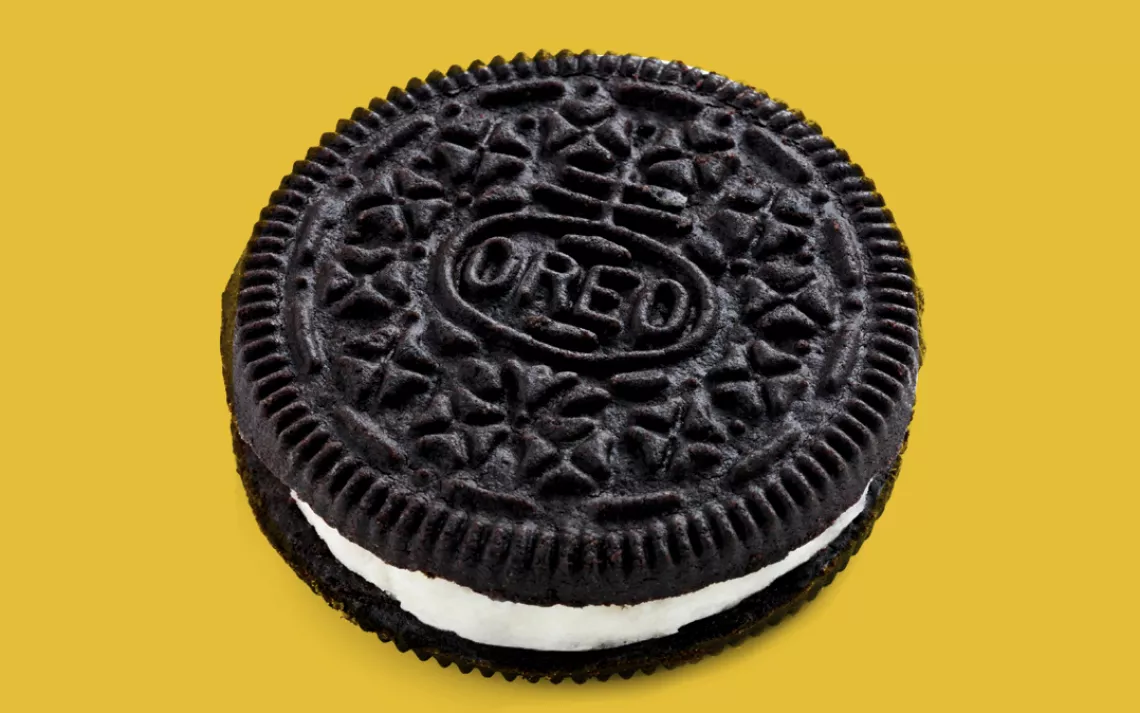
Within your kitchen cabinets lurks an environmental hazard responsible for wiping out millions of acres of rainforest, heating the climate, displacing indigenous people, and bringing rare creatures to the brink of extinction. It's called palm oil, and it's in half of all packaged products sold in the supermarket, especially processed and frozen foods but also cleaning products and even lipstick.
The average U.S. consumer uses almost eight pounds of palm oil each year, often unknowingly. On ingredient lists, the sneaky grease has more than 25 aliases, among them vegetable oil, palmate, cocoa butter equivalent, sodium lauryl sulfate, and glyceryl stearate.
In Indonesia and Malaysia, where 85 percent of the world's palm oil is produced, deforestation due to palm oil plantations is releasing massive amounts of carbon that had been sequestered in the forest canopy and dense peat soils.
It's also threatening the survival of Sumatran rhinos, tigers, Asian elephants, and clouded leopards. Hardest hit is the Sumatran orangutan, of which only 6,600 remain. This critically endangered species may be the first great ape to go extinct. Humans are affected too--indigenous people have been forced off their lands, plantation workers have been sickened by pesticides, and nearby residents have been made ill by smoke from forest fires and contaminated water.
Giant palm oil producers Wilmar International, Cargill, and IOI Loders Croklaan have promised to clean up their acts; food giants PepsiCo, Kraft, and Heinz have not. Laurel Sutherlin of the Rainforest Action Network isn't impressed. "Has the forest stopped falling?" he asks. "No."
 The Magazine of The Sierra Club
The Magazine of The Sierra Club
